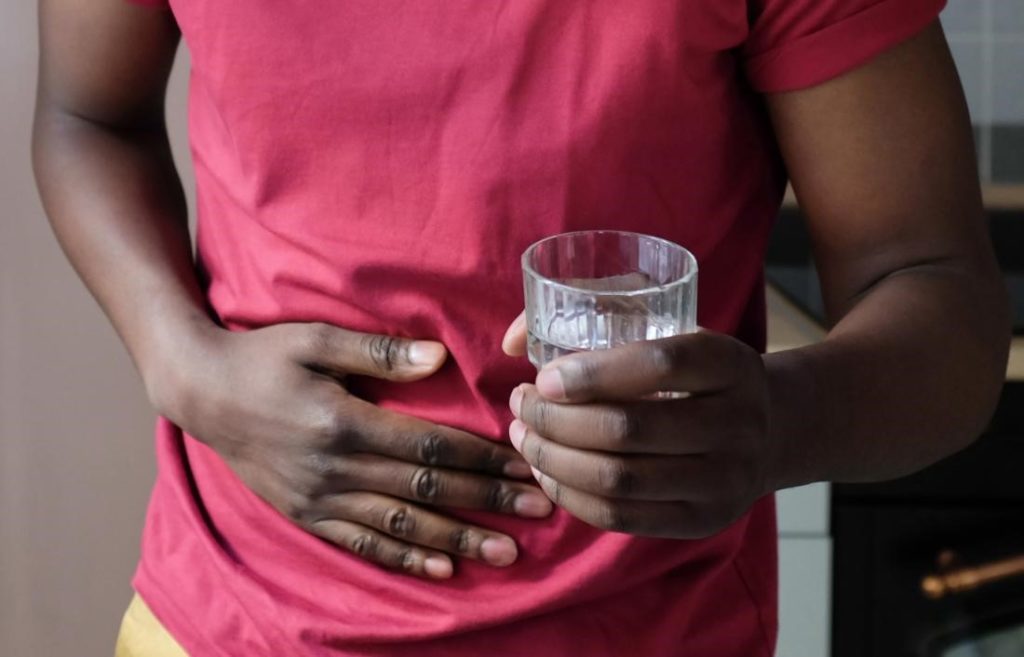
Over 80% of the People Don’t Drink Enough Water, Are You One of Them?
Water is linked with everything. More than 70% of the surface area of the Earth is covered with water, and more than 60% of our bodies contain water. Even as much as 90% of the blood is composed of water. However, the interesting thing is that drinking water is often not in our priority list. This time I will briefly share how the simple action of drinking water actually brings far more benefits than just quenching thirst:
1. Drinking Water Can Help You Lose Weight
There are no calories at all in water, and it can occupy a part of your stomach. Drinking a glass of water before a meal can effectively help us feel fuller faster during a meal, as well as avoid eating too much unintentionally. People who drink an insufficient amount of water are likely to have a hidden hunger, which tends to make them eat all the time, even when they’re not actually hungry.
2. Drinking Water Can Enhance Athletic Performance
In endurance sports, the loss of more than 2% of the water in your body will cause it to activate the protective mechanism, which is causing the heartbeat to rise and the footsteps to become heavier. This will then cause the athletic performance to decline. Therefore, we recommend regular drinking of water for exercises of over 30 minutes, in order to delay the timing of the decline in athletic performance.

3. Take Away the Metabolic Waste in the Body
Sufficient amount of water can help our metabolic efficiency to become better, and can even assist in the excretion of waste through urine and feces.
4. Maintain Proper Blood Pressure
90% of the blood is composed of water. Lack of water will easily increase the viscosity of blood, increase blood pressure, and increase the load of cardiac output, which will then also increase the probability of cardiovascular diseases.

5. Respiratory Immunity
When we lack water, the mucous membrane of the respiratory tract will appear dry, which will, in turn, reduce the ability to block pathogens from invading our bodies. This will cause us to become vulnerable to infections. In addition, the respiratory tract will start contracting to try to avoid water loss, which may cause asthma.
6. Drink Water to Ensure the Absorption of Minerals and Nutrients
The absorption of many minerals and nutrients must first be dissolved in water. For example, the Vitamin B Complex and Vitamin C, which we are all quite familiar with, are both water-soluble, so not drinking enough water will reduce the absorption efficiency. In the process of storing glycogen, you need 4g of water to store 1g of glycogen. Therefore, in order to maximize the effect, the intake of carbohydrates must be accompanied by a sufficient amount of water.
7. Regulate Body Temperature
Moisture is hidden in the dermis layer. With the rise of the body temperature, it passes through the sweat glands and appears on the skin surface, and with the effect of evaporation and transpiration, the effect of heat dissipation is achieved. However, some studies have found that the human body has a certain degree of tolerance for water shortage, so further research is needed.
8. Ensure the Function of the Digestive Tract is Normal
In the normal operation of the gastrointestinal tract, water plays an indispensable role. A Lack of water can cause constipation. In severe cases, it can cause the gastric acid to become overly acidic, which can, then, cause burns or even gastric ulcers or perforations.

9. Revitalize the Nerve Function
Our brain and spinal cord also contain a lot of water. By secreting hormones or neurotransmitters, they act as the commander of the whole body. The lack of water will affect our thinking and the ability to regulate our whole body.
10. Joint Lubrication
Whether it’s our limbs or the middle of the intervertebral discs, they all contain cartilage, of which its responsibility and role is to buffer. The cartilage contains 80% water, and in some joints, there is joint capsule fluid. In the case of lacking water for a long period of time, the buffering capacity will be reduced and the wear of the cartilage will be accelerated, which will cause joint pains.
11. Healthy and Beautiful Skin
The firmness of the skin is closely related to collagen, and collagen is mostly composed of water. Therefore, in the case where there is a lack of water, our skin will become unhealthy. In mild cases, it’ll be dry and wrinkled, but in severe cases, this natural immune barrier might be destroyed.
12. Normal Physiology of the Kidney and Urinary Tract
The kidney is responsible for metabolizing waste and regulating water. It filters more than 110 liters of water a day, but only 1-2 liters are excreted in urine, and the rest is recycled and reused by the body. Insufficient water will affect the metabolism of urea, where the waste will accumulate in the body and damage the kidneys. This will also increase the risk of urinary tract infections.
From the above, we know that not drinking enough water will cause our skin to become unbeautiful, our sports performance to decline, our brain functions to decline, and the respiratory tract to be more susceptible to infections. This will bring burden to the digestive tract, kidneys, heart and other organs, and will also cause our joints to become painful. Let’s drink a large glass of water right now before continuing to see how much water a person should drink in a day.
We lose water mainly through sweating, urine, feces, and even breathing will cause water loss. The sources of water in life are actually quite diverse; for example, in soups, vegetables and fruits, all types of foods contain water. Therefore, it is not an easy task to directly estimate how much water we have taken in.

The demand for water varies greatly from person to person, and the factors that affect this include dieting habits, level of activity, amount of sweat, etc. There is no certain formula. According to the recommendations of the United States National Academy of Sciences, the average total water intake (food and liquid) for men and women is:
Male: About 3.7 L
Female: About 2.7 L
Around 80% of the water comes from the intake of liquids. After the conversion, men need to drink 3 liters of liquid (water or other drinks) per day, while women need to drink 2.2 liters of liquid. This is just the average, so for people who sweat more or when the weather is hot, for people who have a fever, or who recently had a fever or diarrhea, they must drink more fluid.
Unfortunately, nearly 80% of the people do not drink enough water. Through downloading the CIQ app from Garmin watches, you can record the amount of water you drink in a day. After setting the goal, you can record, at any time, the amount of water you drink and know the progress you’ve made and how far you are from the goal. You can check these with your watch and Garmin Connect to ensure that you are drinking enough water.
Download Garmin Hydration Tracking CIQ Here
(Please refer to the link for details on compatible watch models)
Drinking water is the most cost-efficient, convenient, and direct way to help the body improve immunity and maintain good operation. Before purchasing a wide range of supplements, ask yourself are you drinking enough water? Garmin will accompany you in monitoring the drinkin









